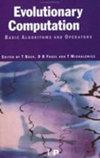Hybridization of Evolutionary Operators with Elitist Iterated Racing for the Simulation Optimization of Traffic Lights Programs
IF 3.4
2区 计算机科学
Q2 COMPUTER SCIENCE, ARTIFICIAL INTELLIGENCE
引用次数: 1
Abstract
In the traffic light scheduling problem, the evaluation of candidate solutions requires the simulation of a process under various (traffic) scenarios. Thus, good solutions should not only achieve good objective function values, but they must be robust (low variance) across all different scenarios. Previous work has shown that combining IRACE with evolutionary operators is effective for this task due to the power of evolutionary operators in numerical optimization. In this article, we further explore the hybridization of evolutionary operators and the elitist iterated racing of IRACE for the simulation–optimization of traffic light programs. We review previous works from the literature to find the evolutionary operators performing the best when facing this problem to propose new hybrid algorithms. We evaluate our approach over a realistic case study derived from the traffic network of Málaga (Spain) with 275 traffic lights that should be scheduled optimally. The experimental analysis reveals that the hybrid algorithm comprising IRACE plus differential evolution offers statistically better results than the other algorithms when the budget of simulations is low. In contrast, IRACE performs better than the hybrids for a high simulations budget, although the optimization time is much longer.混合进化算子与精英迭代竞速的交通信号灯仿真优化
在交通灯调度问题中,候选方案的评价需要模拟各种交通场景下的过程。因此,好的解决方案不仅应该实现好的目标函数值,而且必须在所有不同的场景中都具有鲁棒性(低方差)。先前的研究表明,由于进化算子在数值优化中的强大功能,将IRACE与进化算子相结合是有效的。在本文中,我们进一步探讨了进化算子和IRACE的精英迭代赛车的杂交,用于红绿灯程序的模拟优化。我们回顾了以往的文献,找到了在面对这一问题时表现最好的进化算子,并提出了新的混合算法。我们通过一个现实的案例研究来评估我们的方法,该案例研究来源于Málaga(西班牙)的交通网络,其中有275个交通信号灯应该被优化安排。实验分析表明,当模拟预算较低时,由IRACE和差分进化组成的混合算法在统计上优于其他算法。相比之下,尽管优化时间更长,但在高模拟预算下,IRACE的性能优于混合动力车。
本文章由计算机程序翻译,如有差异,请以英文原文为准。
求助全文
约1分钟内获得全文
求助全文
来源期刊

Evolutionary Computation
工程技术-计算机:理论方法
CiteScore
6.40
自引率
1.50%
发文量
20
审稿时长
3 months
期刊介绍:
Evolutionary Computation is a leading journal in its field. It provides an international forum for facilitating and enhancing the exchange of information among researchers involved in both the theoretical and practical aspects of computational systems drawing their inspiration from nature, with particular emphasis on evolutionary models of computation such as genetic algorithms, evolutionary strategies, classifier systems, evolutionary programming, and genetic programming. It welcomes articles from related fields such as swarm intelligence (e.g. Ant Colony Optimization and Particle Swarm Optimization), and other nature-inspired computation paradigms (e.g. Artificial Immune Systems). As well as publishing articles describing theoretical and/or experimental work, the journal also welcomes application-focused papers describing breakthrough results in an application domain or methodological papers where the specificities of the real-world problem led to significant algorithmic improvements that could possibly be generalized to other areas.
 求助内容:
求助内容: 应助结果提醒方式:
应助结果提醒方式:


